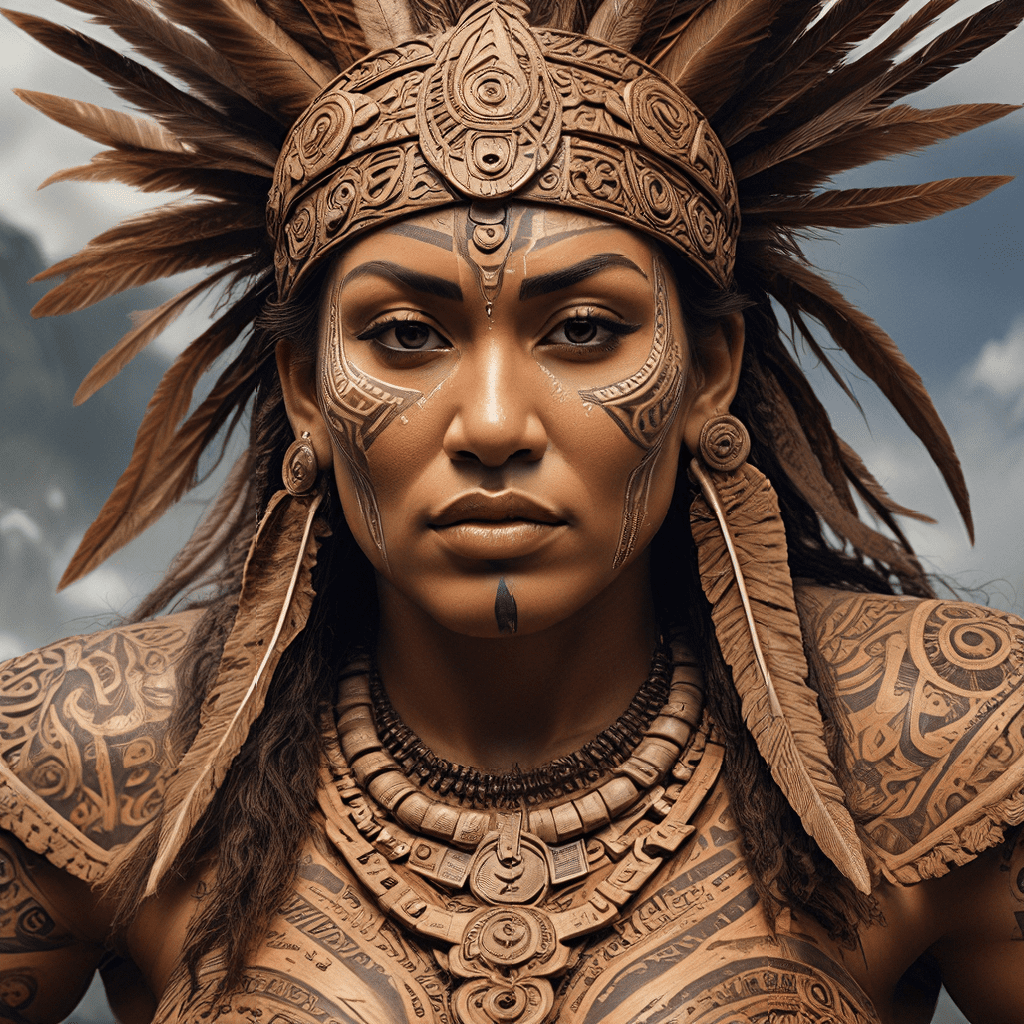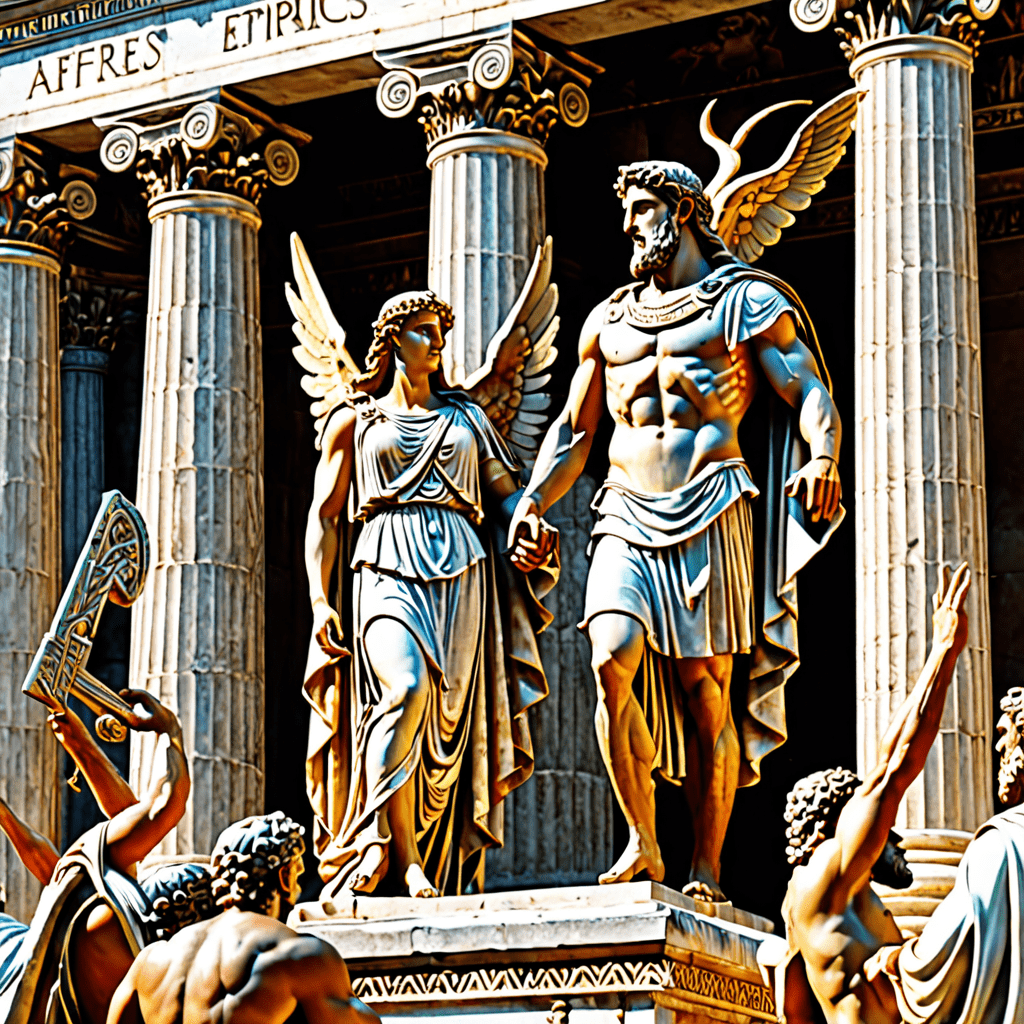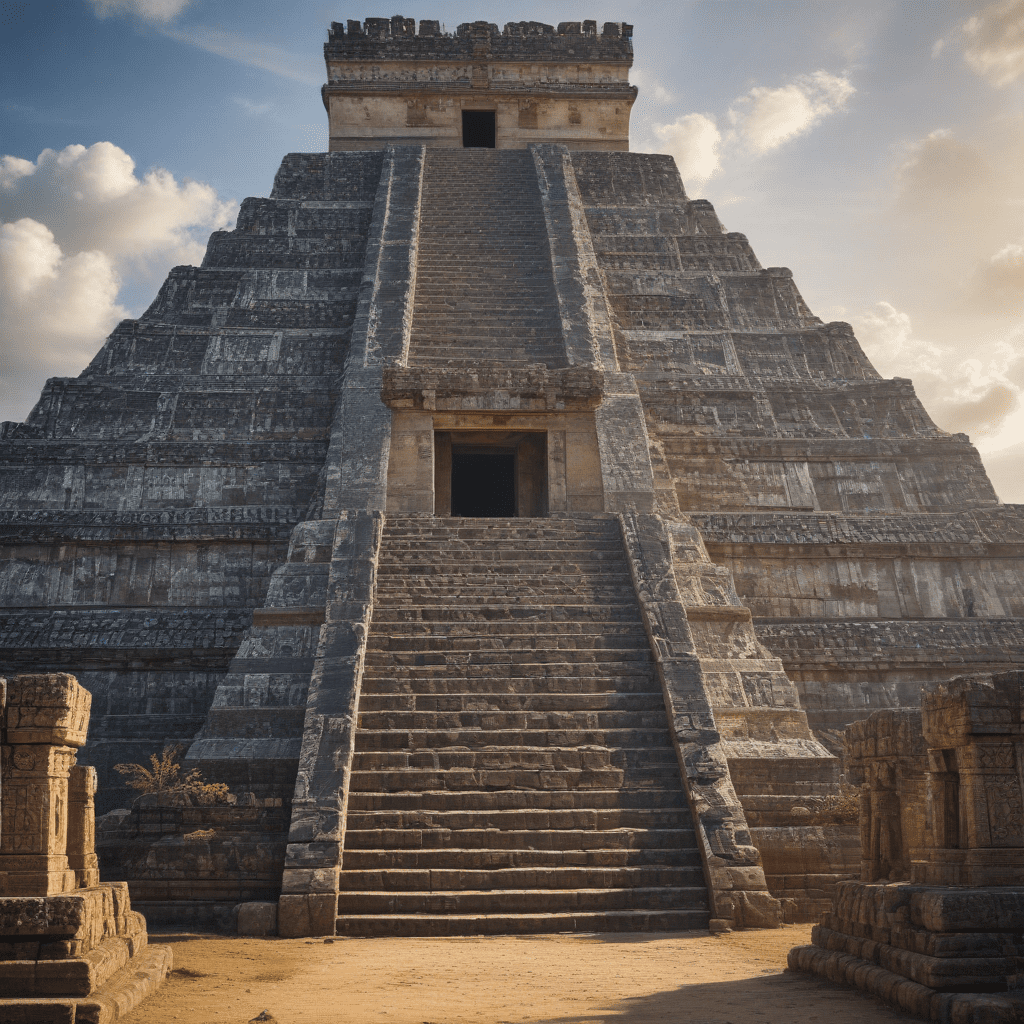Maori Mythology: A Tapestry of Leadership and Governance
Maori mythology, a rich tapestry woven from ancestral stories and traditions, offers profound insights into leadership and governance. Its wisdom, passed down through generations, provides a framework for navigating the complexities of human interaction and fostering harmonious communities. The Maori worldview, rooted in the interconnectedness of all things, emphasizes the importance of responsibility, respect, and collaboration in achieving collective well-being.
The Cosmic Origins of Leadership: The Creation Myth and the Role of Atua
At the heart of Maori mythology lies the creation myth, which tells the story of how the universe came to be. This myth, known as the "Te Kore," delves into the origins of Atua (gods) and their role in shaping the world. These deities, such as Tane Mahuta (god of the forest) and Rangi (god of the sky), embody various aspects of nature and represent the inherent power and wisdom residing in the cosmos. Through the actions of these Atua, the Maori people gained understanding of the fundamental principles governing life, including leadership and governance.
The Power of the Tangata Whenua: The Significance of Ancestry and Land
Maori culture places immense value on the concept of "Tangata Whenua," which translates to "people of the land." This signifies the deep connection between the Maori people and their ancestral lands. It emphasizes that individuals are not merely inhabitants but custodians of the land, responsible for its wellbeing and its future generations. This connection to the land underpins the principles of leadership in Maori society, emphasizing the importance of stewardship, sustainability, and long-term vision.
Navigating the Realm of Leadership: The Archetype of Tane Mahuta
Tane Mahuta, the god of the forest, is a prominent archetype in Maori mythology, offering valuable lessons on leadership. Tane's journey is one of transformation, from a rebellious youth to a responsible leader who embraces his role in nurturing life. His story teaches the importance of integrity, courage, and resilience in facing challenges and making difficult decisions. Additionally, Tane's example highlights the interconnectedness of all beings and the responsibility of leaders to protect and nourish the natural world.
The Principles of Mana: Authority, Power, and Responsibility
"Mana" is a fundamental concept in Maori culture, encompassing authority, power, and responsibility. It is a force that flows through individuals, families, and communities, reflecting their status, achievements, and connection to the ancestral lineage. Mana is not simply a personal attribute but a responsibility to be used ethically and for the benefit of the collective good. The concept of mana underscores the obligations associated with leadership, emphasizing the need for integrity, humility, and service to others.
The Importance of Whakapapa: Lineage and the Intergenerational Transmission of Wisdom
Whakapapa, the intricate system of genealogy and lineage, is central to Maori leadership. It represents the interconnectedness of all beings, tracing ancestry back to the gods and the origins of the universe. Whakapapa is more than a genealogical chart; it's a living tapestry that binds generations together, transmitting knowledge, values, and responsibilities across time. Understanding one's whakapapa is essential for understanding one's role in the community and the obligations that come with it. It provides a framework for navigating relationships, making decisions, and upholding traditions. This intricate web of connections emphasizes the importance of mentorship, guidance from elders, and ensuring the continuity of cultural knowledge. Leaders are expected to honor their ancestors and serve as stewards of their legacy, ensuring that future generations inherit a rich cultural heritage.
The Role of Tikanga: Customary Laws and Ethical Frameworks
Tikanga, the customary laws and practices of the Maori, provides a moral and ethical compass for leadership. It encompasses a wide range of beliefs and traditions, including protocols for behavior, decision-making, and conflict resolution. Tikanga emphasizes the importance of respect, fairness, and reciprocity in all interactions. These principles are reflected in the role of leaders who are expected to uphold tikanga and guide their communities towards ethical and sustainable practices. Tikanga serves as a framework for navigating social interactions, resolving disputes, and ensuring the well-being of the community. It underscores the importance of collective wisdom and the responsibility of leaders to uphold the values that bind the community together.
The Spirit of Collaboration: The Power of Collective Decision-making
Maori leadership values collaboration and collective decision-making, acknowledging that strength lies in unity. The concept of "whanaungatanga," which emphasizes the importance of family, community, and kinship, underpins this approach. Leaders are expected to consult with their people, consider diverse perspectives, and reach consensus through open dialogue. This process ensures that decisions are made with the best interests of the community in mind and that everyone feels invested in the outcome. The power of collective decision-making fosters a sense of shared responsibility and ownership, ensuring that leadership is not solely the purview of a select few. This collaborative approach is vital for achieving goals that benefit the entire community.
The Value of Whanaungatanga: The Strength of Family, Community, and Kinship
Whanaungatanga, a core value in Maori culture, emphasizes the importance of family, community, and kinship. This concept highlights the interconnectedness of all beings and the shared responsibility for each other's well-being. Whanaungatanga fosters a sense of belonging and collective purpose, reminding individuals that their actions have an impact on the wider community. Leaders, as members of the whanau, are expected to prioritize the needs of the collective, ensuring that their actions promote harmony and well-being for all. This emphasis on family and community reinforces the importance of collaboration, empathy, and compassion in leadership.
The Legacy of the Gods: Contemporary Applications of Maori Leadership Principles
The wisdom of Maori mythology continues to inspire contemporary leadership in various contexts. The timeless principles of responsibility, respect, collaboration, and stewardship are relevant to navigating the challenges of modern society. From the principles of mana and tikanga to the importance of whakapapa and whanaungatanga, Maori leadership principles offer a valuable framework for building inclusive, sustainable, and ethical communities. As we face complex global challenges, such as climate change, social inequality, and environmental degradation, the enduring wisdom of Maori mythology provides a powerful reminder of the interconnectedness of all beings and the need for responsible and collaborative leadership.
FAQ – Maori Leadership: Ancient Wisdom for Modern Governance
Q: What is the relationship between Maori mythology and leadership?
A: Maori mythology provides a rich tapestry of stories and traditions that offer insights into the principles of leadership, emphasizing values such as responsibility, respect, and collaboration.
Q: How does the concept of “mana” relate to leadership in Maori culture?
A: Mana represents authority, power, and responsibility. Leaders are expected to use mana ethically and for the benefit of the community, upholding the principles of integrity and service.
Q: What is the significance of “whakapapa” in Maori leadership?
A: Whakapapa refers to lineage and ancestral connections. It underscores the importance of honoring one’s legacy, learning from elders, and ensuring the continuity of cultural knowledge across generations.
Q: How does “tikanga” guide leadership in Maori society?
A: Tikanga, the customary laws and practices of the Maori, provides a framework for ethical behavior, decision-making, and conflict resolution. It emphasizes respect, fairness, and reciprocity as essential principles of leadership.
Q: What is the role of “whanaungatanga” in Maori leadership?
A: Whanaungatanga emphasizes the importance of family, community, and kinship. It fosters a sense of belonging and shared responsibility, reminding leaders that their actions have an impact on the well-being of the entire community.




